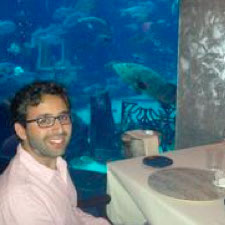Are explanations of human actions which appeal to reasons compatible with the causal explanations used to account for natural phenomena such as hurricanes, volcanic explosions and the like?
The problem of the relation between the explanatory practices of the human and natural sciences was addressed by Kant who sought to reconcile theoretical and practical reason by showing that theoretical or scientific knowledge rests on abstract formal conditions which disclose reality as causally determined. Kant’s philosophy aimed to reconcile the claims of theoretical and practical reason by showing that theoretical or scientific knowledge does not yield unconditioned knowledge of reality; it rather discloses reality from the perspective of finite beings whose knowledge is conditioned. Within Kant’s framework of transcendental idealism the task of defending the autonomy of practical reason is thus closely linked to a conception of philosophy as a second-order enquiry whose task is to make explicit the formal conditions of theoretical or scientific knowledge.
This conception of philosophy has come under attack from increasingly naturalistic views of the role and character of philosophical analysis. As a result, the defence of the autonomy of the human sciences has also changed and it is now almost exclusively articulated from a naturalistic standpoint. The question for non-reductivists does not tend to be: ‘What are the postulates and heuristic principles at work in the natural and the human sciences?’ But rather: ‘How can mind fit in the natural world?’ The task of philosophy is no longer that of uncovering the presuppositions underpinning different ‘forms of experience’, and show how they enable different ways of knowing, but rather to assume the methodological superiority of the natural sciences and then to articulate forms of non-reductivism which do not upset the presuppositions of scientific knowledge. Even when such naturalistic assumptions are relaxed, as in the case of ‘liberal naturalism’, non-reductivism is still predominantly articulated from a naturalistic platform.
This project explores a form of non-reductivism which has its roots in the idealist tradition and which challenges the view that a defence of the autonomy of the human sciences must be launched from a naturalistic platform. It explores a form of post-Kantian non-reductivism in the philosophy of mind which articulates the defence of the human sciences from the perspective of a conception of philosophy as a second-order enquiry whose task is to make explicit the heuristic principle at work in different forms of enquiry. From this perspective philosophy does not seek to reconcile the claims of theoretical and practical reason by accommodating the mind in the natural world, or by blurring the boundaries between the explanatory practices of the human and the natural sciences. It rather seeks to show that different forms of experience are made possible by different presuppositions. In doing this it enables us to understand how human beings can be committed to the idea of scientific progress without renouncing the attempt to make sense of their lives through humanistic explanations which are different in kind and not only in degree from those found in the natural sciences.
Visit the dedicated project website for more information.
Image: Kettle Creek Gorge Natural Area (3), Nicholas A. Tonelli

Giuseppina D’Oro
Principal Investigator

Paul Giladi
Co-investigator

Alexis J. Papazoglou
Co-investigator